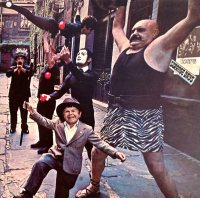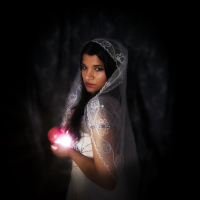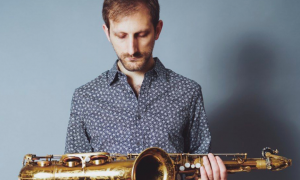Home » Jazz Articles » Interview » Julian Priester: Reflections in Positivity
Julian Priester: Reflections in Positivity
JP: I blame capitalism for that too. It's bent on turning it over, it has to have a new product. When sales start to drop off, forget that, let's go over here now. Consequently, everything is lost with that revolving psyche. What's value, who is valuable? It's here today, gone tomorrow, no matter what it is. That's not right. I'm concerned, I'm really concerned because we're on the precipice, if something doesn't happen to save us, it's going to get lost. How many people actually sit down and listen to music these days?
AAJ: Throughout your entire career, regardless of who you are playing with, or what style, or form your are engaging, in terms of your playing, you have remained true to yourself. Many musicians have told me that at the end of the day, it's about expressing yourself truthfully on the bandstand in the moment, having your peers accept what you are playing. To me, and many others, you exemplify this. Truth?
JP: That's the truth, yes. When I was working with Duke, I had to adapt, and that was one of the things that bothered me, because I wasn't really speaking from my own voice, I was speaking from Duke Ellington's voice. It was touch and go. All these great stylists in the band, each and every one of them as individuals had their own voice.
AAJ: And you certainly have yours my friend. Thank you so much Julian.
JP: My pleasure Paul.
Photo Credit: Daniel Sheehan / Earshot Jazz
Tags
Interview
Julian Priester
Paul Rauch
United States
Washington
Seattle
Charlie Parker
Muddy Waters
Bo Diddley
Sun Ra
John Gilmore
Pat Patrick
Robert Barry
Thelonious Monk
Johnny Griffin
Gene Ammons
Clifford Jordan
Max Roach
Elvin Jones
Jimmy Heath
McCoy Tyner
Tommy Flanagan
Sam Jones
John Coltrane
David Marriott Jr.
JJ Johnson
Sonny Rollins
Doug Beavers
Cat Anderson
Cootie Williams
Paul Gonsalves
Garnett Brown
Eddie Henderson
Buster Williams
Billy Hart
Bernie Maupin
Julie London
June Christy
John Dykers
Melvin Strauss
PREVIOUS / NEXT
Support All About Jazz
 All About Jazz has been a pillar of jazz since 1995, championing it as an art form and, more importantly, supporting the musicians who make it. Our enduring commitment has made "AAJ" one of the most culturally important websites of its kind, read by hundreds of thousands of fans, musicians and industry figures every month.
All About Jazz has been a pillar of jazz since 1995, championing it as an art form and, more importantly, supporting the musicians who make it. Our enduring commitment has made "AAJ" one of the most culturally important websites of its kind, read by hundreds of thousands of fans, musicians and industry figures every month.






















